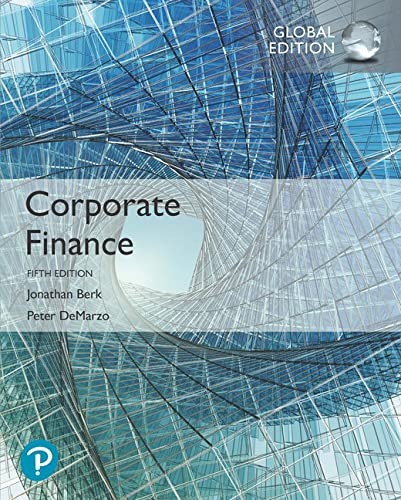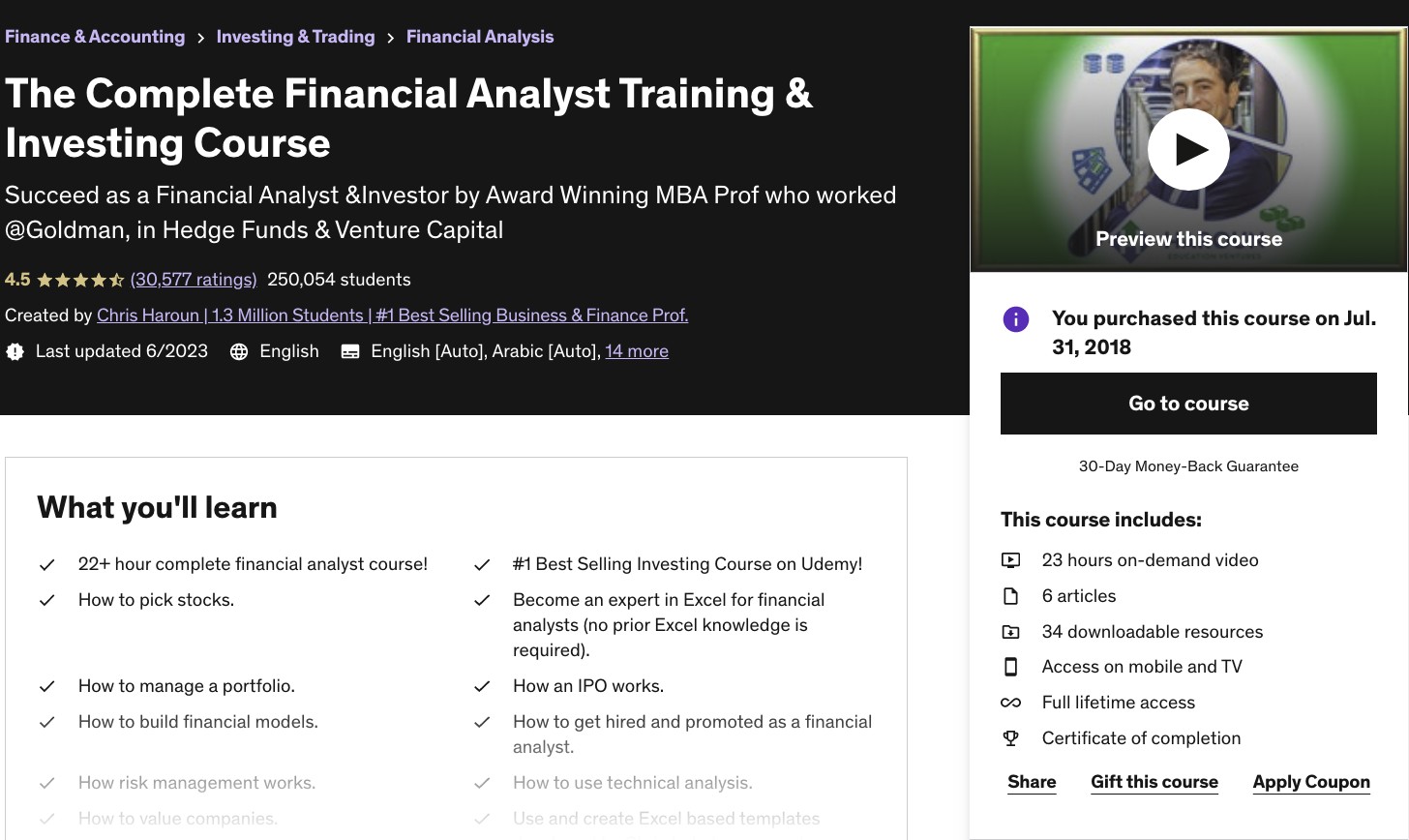Can I Learn Finance On My Own? Absolutely. Mastering finance on your own is achievable through strategic self-education and the right resources. At LEARNS.EDU.VN, we believe in empowering individuals to take control of their financial education, offering pathways to financial literacy and independent learning in investments and corporate finance.
1. Understanding Your Motivation to Learn Finance Independently
Before diving in, understanding why you want to learn finance is crucial. Self-directed learning requires discipline, so your reasons will fuel your commitment.
1.1 Professional Advancement
Are you aiming for a career in finance, or looking to enhance your skills in your current role? Understanding financial principles can unlock opportunities in various industries.
1.2 Personal Enrichment
Perhaps you simply want to manage your investments better, understand market trends, or make informed financial decisions. Personal finance knowledge empowers you to achieve your financial goals.
1.3 Business Acumen
If you’re an entrepreneur or business owner, financial literacy is essential for making strategic decisions, securing funding, and ensuring the long-term success of your venture.
2. Laying the Foundation: Introductory Books
Begin your journey with accessible and engaging books to spark your interest and provide a broad overview of finance.
2.1 Recommended Introductory Books
Consider these popular titles:
| Title | Author(s) | Description |
|---|---|---|
| “Rich Dad Poor Dad” | Robert Kiyosaki | A classic that challenges conventional wisdom about money and investing. |
| “The Total Money Makeover” | Dave Ramsey | A practical guide to debt elimination and financial stability. |
| “The Intelligent Investor” | Benjamin Graham | A timeless guide to value investing. |
| “A Random Walk Down Wall Street” | Burton Malkiel | An exploration of investment strategies and market efficiency. |
| “Common Stocks and Uncommon Profits” | Philip Fisher | Insights into long-term investing in growth stocks. |



2.2 Identifying Your Interests
These introductory books will expose you to different facets of finance, helping you identify areas that pique your interest. This will guide your future studies.
3. Building a Strong Theoretical Base with Textbooks
Once you’ve explored introductory material, it’s time to delve into a comprehensive textbook. This will provide a structured framework for your learning.
3.1 Textbook Recommendations
A widely used textbook is “Corporate Finance” by Ross, Westerfield, and Jaffe. It covers fundamental concepts like:
- Time Value of Money: Understanding the present and future value of investments.
- Bond and Stock Valuation: Determining the fair price of securities.
- Risk and Return: Assessing the trade-off between risk and potential returns.
- Capital Asset Pricing Model (CAPM): A model for determining the expected return on an investment.
3.2 Supplementing with Online Resources
Utilize online resources like Khan Academy and Coursera to supplement your textbook learning. These platforms offer videos, practice problems, and interactive exercises to reinforce your understanding.
4. Staying Current: Reading Financial News
To connect theory with practice, regularly read reputable financial news sources.
4.1 Key Publications
- The Wall Street Journal (WSJ): Provides in-depth coverage of financial markets, business trends, and economic news.
- The Financial Times (FT): Offers a global perspective on finance and economics.
- Bloomberg: A leading source for financial data, news, and analysis.
4.2 Benefits of Regular Reading
Reading financial news helps you:
- Understand Market Dynamics: See how economic events and news stories affect financial markets.
- Develop Critical Thinking: Analyze financial information and form your own opinions.
- Expand Your Vocabulary: Familiarize yourself with financial terminology and jargon.
5. Practical Application: Online Courses and Certifications
Online courses provide structured learning experiences and opportunities to apply your knowledge.
5.1 Course Platforms
- Coursera: Offers courses from top universities and business schools.
- edX: Provides access to courses from leading institutions worldwide.
- Udemy: Features a wide range of finance courses taught by industry professionals.
- LEARNS.EDU.VN: Offers curated finance courses designed for self-paced learning.
5.2 Recommended Courses
- Financial Accounting: Understanding financial statements and their analysis.
- Corporate Finance: Covering capital budgeting, valuation, and financial planning.
- Investment Management: Exploring portfolio construction, asset allocation, and risk management.
5.3 Certification Programs
- Chartered Financial Analyst (CFA): A globally recognized credential for investment professionals.
- Certified Financial Planner (CFP): A certification for financial advisors who provide personal financial planning services.
6. Hands-on Experience: Financial Modeling and Analysis
To truly master finance, you need to apply your knowledge through practical exercises.
6.1 Building Financial Models
- Excel Skills: Proficiency in Excel is essential for financial modeling. Learn how to create spreadsheets, use formulas, and build financial models.
- Model Types: Practice building different types of models, such as:
- Valuation Models: Estimating the intrinsic value of a company or asset.
- Budgeting Models: Creating financial budgets and forecasts.
- Investment Analysis Models: Evaluating investment opportunities.
6.2 Tools and Resources
- Online Tutorials: Websites like YouTube and Investopedia offer tutorials on financial modeling in Excel.
- Templates: Download financial model templates to get a head start on your projects.
7. Deepening Your Knowledge: Specialized Areas of Finance
As you progress, you can specialize in specific areas of finance that align with your interests and career goals.
7.1 Investment Banking
Investment bankers help companies raise capital through the issuance of stocks and bonds. They also advise companies on mergers and acquisitions.
7.2 Asset Management
Asset managers invest money on behalf of individuals and institutions. They manage portfolios of stocks, bonds, and other assets.
7.3 Corporate Finance
Corporate finance professionals manage a company’s finances, including capital budgeting, financial planning, and risk management.
7.4 Risk Management
Risk managers identify and mitigate financial risks faced by companies and financial institutions.
7.5 Real Estate Finance
Real estate finance professionals specialize in financing and investing in real estate projects.
8. Networking and Mentorship
Connecting with other finance professionals can provide valuable insights and guidance.
8.1 Networking Opportunities
- Industry Events: Attend conferences, seminars, and workshops to meet people in the finance industry.
- Online Communities: Join online forums and social media groups focused on finance.
- Professional Organizations: Become a member of organizations like the CFA Institute or the Financial Management Association.
8.2 Finding a Mentor
- Identify Potential Mentors: Look for experienced finance professionals who can offer guidance and support.
- Reach Out: Contact potential mentors and ask if they would be willing to mentor you.
- Build a Relationship: Meet with your mentor regularly to discuss your goals, challenges, and progress.
9. The Role of Investopedia in Your Learning Journey
Investopedia is an invaluable resource for self-learners in finance.
9.1 Comprehensive Definitions
Investopedia provides clear and concise definitions of financial terms, concepts, and formulas.
9.2 Educational Articles
The website offers in-depth articles on a wide range of finance topics, from personal finance to corporate finance.
9.3 Investopedia Academy
Investopedia Academy offers paid courses on various finance topics, providing structured learning experiences.
9.4 Staying Updated
Investopedia regularly updates its content to reflect the latest developments in the financial world.
10. Leveraging LEARNS.EDU.VN for Your Financial Education
LEARNS.EDU.VN is dedicated to providing high-quality educational resources for self-learners.
10.1 Curated Finance Courses
We offer a selection of finance courses designed for self-paced learning, covering topics like:
- Financial Literacy: Understanding basic financial concepts and principles.
- Investment Strategies: Learning how to invest in stocks, bonds, and other assets.
- Personal Finance Management: Developing a budget, managing debt, and saving for retirement.
10.2 Expert Insights
Our platform features articles and insights from experienced finance professionals, providing valuable perspectives on industry trends and best practices.
10.3 Community Support
Connect with other learners on our forums and social media channels to share your experiences, ask questions, and learn from each other.
11. Maintaining Momentum: Staying Motivated and Disciplined
Self-directed learning requires a high degree of motivation and discipline.
11.1 Setting Realistic Goals
- Break Down Your Goals: Divide your learning goals into smaller, manageable steps.
- Set Deadlines: Establish deadlines for completing each step to stay on track.
11.2 Tracking Your Progress
- Keep a Learning Journal: Record what you’ve learned, what you’re struggling with, and your progress towards your goals.
- Use a Study Planner: Schedule dedicated study time each week and stick to your plan.
11.3 Rewarding Yourself
- Celebrate Milestones: Reward yourself when you achieve your learning goals.
- Take Breaks: Avoid burnout by taking regular breaks and engaging in activities you enjoy.
12. Adapting to Change: Continuous Learning
The finance industry is constantly evolving, so it’s essential to stay up-to-date on the latest trends and developments.
12.1 Staying Informed
- Read Industry Publications: Subscribe to newsletters and magazines that cover the finance industry.
- Attend Webinars and Conferences: Participate in online and in-person events to learn from experts.
- Follow Thought Leaders: Stay informed by following influential finance professionals on social media.
12.2 Embracing New Technologies
- FinTech: Explore the latest financial technologies, such as robo-advisors and blockchain.
- Data Analytics: Learn how to use data analytics tools to analyze financial data and make informed decisions.
13. Addressing the Challenges of Self-Learning
While self-learning offers flexibility and autonomy, it also presents unique challenges.
13.1 Overcoming Procrastination
- Identify Your Triggers: Determine what leads you to procrastinate and develop strategies to overcome these triggers.
- Use Time Management Techniques: Techniques like the Pomodoro Technique can help you stay focused and productive.
13.2 Staying Focused
- Minimize Distractions: Create a dedicated study space free from distractions.
- Use Focus Apps: Apps like Freedom and Forest can block distracting websites and apps.
13.3 Seeking Clarification
- Utilize Online Forums: Ask questions and seek clarification from other learners on online forums.
- Reach Out to Experts: Don’t hesitate to contact finance professionals or instructors for help.
14. Tools and Technologies for Self-Directed Finance Learning
Leveraging the right tools can significantly enhance your learning experience.
14.1 Financial Calculators
- HP 12C: A classic financial calculator widely used in the industry.
- Online Calculators: Websites like CalculatorSoup offer a variety of financial calculators.
14.2 Software and Platforms
- Excel: Essential for financial modeling and analysis.
- Trading Platforms: Platforms like MetaTrader and TradingView allow you to practice trading and analyze financial markets.
14.3 Mobile Apps
- Stock Tracking Apps: Apps like Yahoo Finance and Google Finance allow you to track stock prices and market news.
- Budgeting Apps: Apps like Mint and Personal Capital help you manage your finances and track your spending.
15. Applying the E-E-A-T Principles to Your Learning
To ensure the quality and credibility of your financial knowledge, adhere to the E-E-A-T principles (Expertise, Experience, Authoritativeness, and Trustworthiness).
15.1 Expertise
- Focus on Fundamentals: Master the core concepts of finance before moving on to more advanced topics.
- Seek Multiple Perspectives: Read articles and books from different authors to gain a well-rounded understanding.
15.2 Experience
- Practice with Real-World Examples: Apply your knowledge to real-world financial scenarios.
- Simulate Trading: Use trading simulators to practice investing without risking real money.
15.3 Authoritativeness
- Rely on Reputable Sources: Focus on information from established financial institutions, academic journals, and reputable news outlets.
- Cross-Reference Information: Verify information from multiple sources to ensure accuracy.
15.4 Trustworthiness
- Be Skeptical: Approach financial information with a critical mindset and be wary of get-rich-quick schemes.
- Seek Professional Advice: Consult with a qualified financial advisor before making any major financial decisions.
16. Real-World Examples of Successful Self-Taught Finance Professionals
Inspiration can come from seeing others achieve success through self-directed learning.
16.1 Warren Buffett
The “Oracle of Omaha” is a renowned investor who honed his financial skills through extensive reading and self-study.
16.2 Peter Lynch
A legendary fund manager, Lynch emphasized the importance of independent research and understanding the companies you invest in.
16.3 Benjamin Graham
The “father of value investing,” Graham developed his investment philosophy through rigorous self-education and analysis.
17. Staying Ahead of the Curve: Emerging Trends in Finance
The financial landscape is constantly evolving, so it’s essential to stay informed about emerging trends.
17.1 Sustainable Finance
| Trend | Description | Impact |
|---|---|---|
| Green Bonds | Bonds issued to finance environmentally friendly projects. | Growing investor interest in environmentally responsible investments. |
| ESG Investing | Investing based on environmental, social, and governance factors. | Increasing demand for companies with strong ESG performance. |
17.2 Digital Transformation
| Trend | Description | Impact |
|---|---|---|
| Blockchain Technology | Decentralized ledger technology that enables secure and transparent transactions. | Potential to revolutionize financial transactions and reduce costs. |
| Artificial Intelligence (AI) | Use of AI to automate tasks, improve decision-making, and personalize services. | Enhancing efficiency and accuracy in financial analysis and customer service. |
17.3 Decentralized Finance (DeFi)
| Trend | Description | Impact |
|---|---|---|
| Cryptocurrency | Digital or virtual currency that uses cryptography for security. | Creating new investment opportunities and alternative financial systems. |
| Decentralized Exchanges | Exchanges that operate without a central authority. | Providing greater access to financial services and reducing reliance on traditional intermediaries. |
18. Resources at LEARNS.EDU.VN
LEARNS.EDU.VN is your partner in your finance learning journey, providing comprehensive resources and support.
18.1 Structured Learning Paths
We offer curated learning paths that guide you through the essential concepts of finance in a logical and progressive manner.
18.2 Interactive Exercises
Reinforce your learning with interactive exercises, quizzes, and case studies that test your knowledge and provide practical experience.
18.3 Community Forum
Connect with fellow learners, share insights, and ask questions in our vibrant community forum.
18.4 Expert Support
Get personalized guidance and support from our team of experienced finance professionals.
19. Crafting Your Personalized Finance Learning Plan
The key to successful self-learning is creating a plan that suits your individual needs and goals.
19.1 Assess Your Current Knowledge
- Take a Self-Assessment: Identify your strengths and weaknesses in finance.
- Determine Your Learning Style: Are you a visual, auditory, or kinesthetic learner?
19.2 Set Specific Learning Objectives
- Define Your Goals: What do you want to achieve by learning finance?
- Create a Timeline: How much time can you dedicate to learning each week?
19.3 Select Your Resources
- Choose Books, Courses, and Websites: Gather the resources you need to achieve your learning objectives.
- Create a Study Schedule: Allocate specific times for reading, studying, and practicing.
19.4 Track Your Progress and Adjust Your Plan
- Monitor Your Learning: Regularly assess your progress and make adjustments to your plan as needed.
- Stay Flexible: Be prepared to adapt your plan as your interests and goals evolve.
20. Frequently Asked Questions (FAQs)
20.1 Is it possible to learn finance without a formal degree?
Yes, it is absolutely possible. Many successful finance professionals are self-taught. Focus on building a strong foundation of knowledge, gaining practical experience, and networking with industry professionals.
20.2 How long does it take to learn finance on your own?
The time it takes depends on your learning goals and the amount of time you dedicate to studying. You can gain a solid understanding of the fundamentals in several months. Mastering advanced topics can take several years.
20.3 What are the most important topics to learn in finance?
Key topics include financial accounting, corporate finance, investment management, risk management, and financial modeling.
20.4 What are the best online resources for learning finance?
Consider Coursera, edX, Udemy, Investopedia, and LEARNS.EDU.VN.
20.5 How can I stay motivated while learning finance on my own?
Set realistic goals, track your progress, reward yourself for achieving milestones, and connect with other learners.
20.6 Do I need to be good at math to learn finance?
A basic understanding of math is helpful, but you don’t need to be a math whiz. Focus on learning the key formulas and concepts.
20.7 What are the career opportunities for self-taught finance professionals?
Opportunities include financial analyst, investment manager, financial planner, and entrepreneur.
20.8 How can I gain practical experience in finance?
Consider internships, volunteer opportunities, and personal investment projects.
20.9 How important is networking in the finance industry?
Networking is crucial for building relationships, gaining insights, and finding job opportunities.
20.10 How can LEARNS.EDU.VN help me learn finance?
LEARNS.EDU.VN provides curated courses, expert insights, a community forum, and personalized support to help you succeed in your finance learning journey.
Taking charge of your financial education is a rewarding endeavor. By using the resources available and maintaining discipline and curiosity, you can unlock a world of financial opportunities. Visit LEARNS.EDU.VN to begin your journey and explore our range of courses and resources. For more information, contact us at 123 Education Way, Learnville, CA 90210, United States or Whatsapp: +1 555-555-1212. Visit our website at learns.edu.vn.

